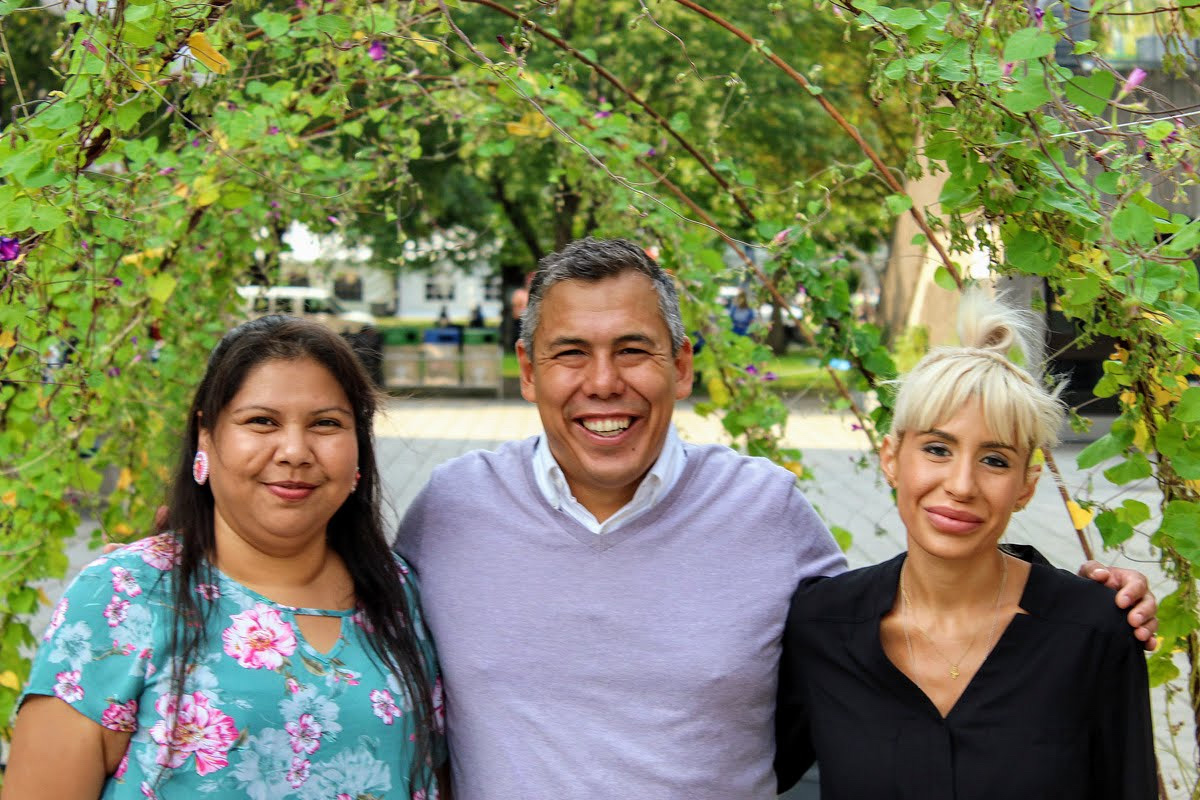
On most Wednesday afternoons, the sound of drumming fills the First Peoples’ House. A group of Indigenous drummers gather regularly in the basement, in a space reserved for them and their instruments – a space that not long ago was used for storage.
“The whole basement was one big storage area, but we wanted to make better use of the space. And we did,” says Allan Vicaire with obvious pride in his voice.
Vicaire has just finished his first year as Director of the First Peoples’ House (FPH), which provides First Nations, Inuit and Métis students attending McGill with a “home away from home,” where they can find support and encouragement to succeed in their studies and remain connected to their culture.
As well, FPH also serves as a residence where, at present, six Indigenous students reside. “On top of my official duties at McGill, I also put away a lot of dishes,” says Vicaire with a wry smile.
Drums, books and traditional medicines
On top of the drumming area, the basement is now equipped with a series of long tables where students can study. Around the corner, Vicaire opens a door to the newly appointed conference room, complete with conference table, whiteboards and a library. “Our collection used to hold all kinds of random books,” says Vicaire. “We’ve been working with Library Services to catalogue the books and to provide a resource that better reflects our needs.”
Just off the kitchen upstairs is the Wellness/healing Room. Once the office of Alyse VanEvery, Indigenous Student Associate, the room has been reappointed as a space for one-on-one meetings with students. “This is where students can meet with Elders or tutors – anything they need,” says Vicaire. In the corner, a cabinet holds traditional medicines such as sage and sweetgrass.
Three pillars of success
On top of revamping physical space, Vicaire and his team have been tweaking FPH’s programming. “Basically, we’re trying to build on the foundation laid by my predecessors,” he says. “We provide cultural connection, academic support and community – these are our three pillars to promote a healthy, safe place for students to succeed.”
Once a week, students meet for Soup and Bannock. “We just break bannock and talk about what’s going on in the world and what’s going on in our lives,” says Vicaire.
As part of the relaunched Elder program, Amelia McGregor from Kahnawà:ke, comes in to take part in one Soup and Bannock event a month. Vicaire hopes to expand the Elder program next semester in order to answer the needs of McGill’s 400+ Indigenous students.
“One of the biggest challenges for Indigenous students is being away from their community. They are so used to seeing themselves reflected in the community, and when they go to university, they do not necessarily see themselves reflected in the classroom or on campus,” says Vicaire. “That’s why we have FPH. They come here, we are that community, that home away from home where they can come and feel connected.”
Expanding programs and services
Riding the momentum of these successful programs, Vicaire has big plans for the FPH’s future.
Working with McGill Career Planning Service (CaPS), FPH will host a Career Day for Indigenous students on Oct. 13, with a CaPS-run workshop in the morning, a lunch panel with students and alumni, and a networking session with employers in the afternoon.
Vicaire is also looking to expand upon the newly-created Indigenous Graduate Network. “For the first time, we’ve been able to bring in grad students to meet with Indigenous academics and faculty members,” says Vicaire. “You hear so much about the isolation felt by grad students and this is an opportunity to bring people together, share their knowledge and learn from each other.”
Based on the recommendations of the Provost’s Task Force on Indigenous Studies and Indigenous Education, Vicaire expects an increase in the numbers of Indigenous students and faculty members in the coming years. More students will require more support and Vicaire hopes to create a new position for Indigenous Student Affairs to coordinate the growing number of services and activities offered by FPH.
“We have lots of great programs that could be expanded,” he says. “Our Cultural Keeper program invites Elders and Indigenous academics to FPH to share their knowledge. But how can we grow this? Orientation is just half a day, but I’ve spoken to other institutions in which orientation lasts a whole week. During Spring break, how can we engage students who don’t go home with activities that are culturally relevant? We need to make that extra effort.”
